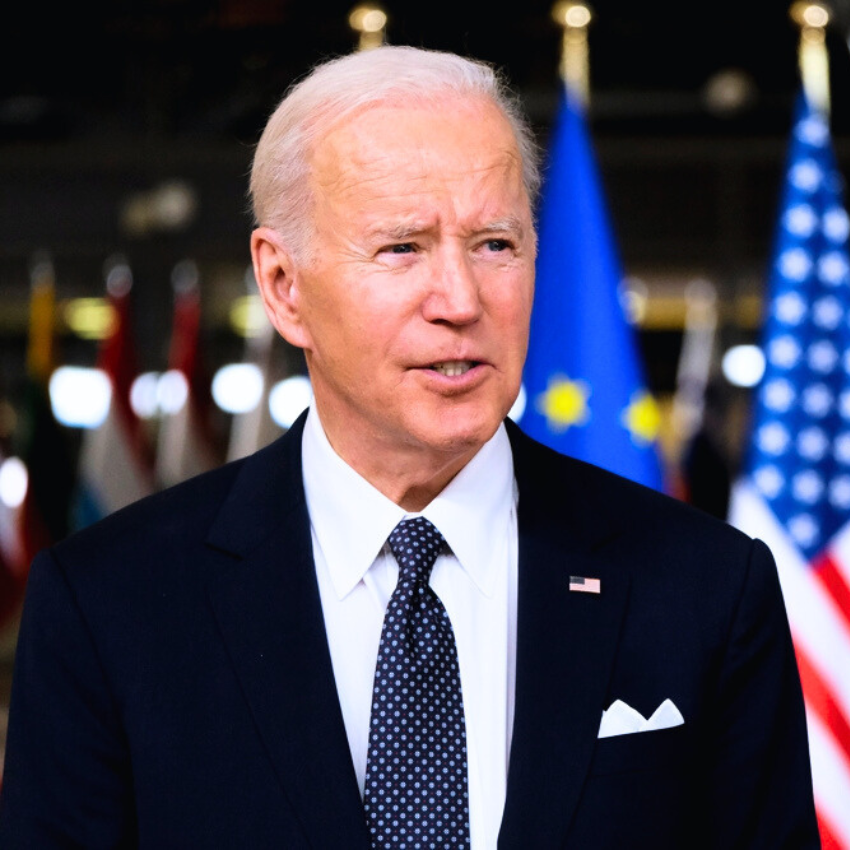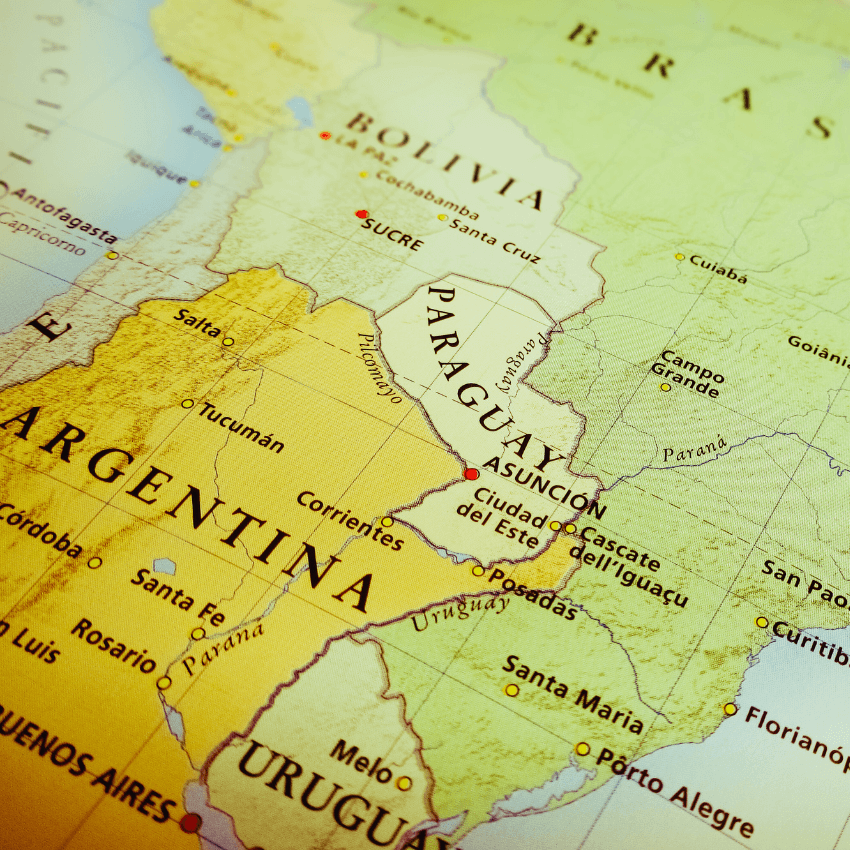Americas Program
Ifri's work on the Americas region focuses mainly on the United States. Indeed, for more than 20 years, Ifri's Americas Program has provided keys to understanding American society and domestic policy while shedding light on developments in the country's foreign policy, including transatlantic relations and trade issues.
Since 2023, a specific axis on Latin America structures more actively Ifri's research on this region.
Ifri's Canada program was active in 2015 and 2016.
Read more


Research Fellow, Head of the Americas Program, Ifri
Titre Bloc Axe
Research Areas
See all our interventions
Titre Axe de recherche
United States
The November 2020 election of Joe Biden ended Donald Trump's extraordinary tenure. However, it doesn't inevitably indicate a return to previous policies, as American society's expectations have changed. Indeed, there is a call for a strong federal state on economic and social issues on the one hand, and on the other hand an increased mistrust vis-à-vis American interventionism. The magnitude of these transformations shows how necessary is a monitoring and analysis of the ever-evolving American political landscape — especially since they resonate with comparable political developments in Europe and in the rest of the world.
Founded in 2000, Ifri's United States Program aims to understand American culture and politics from the inside. Furthermore, it studies the evolutions of the country’s foreign and defense policies. It lastly actively contributes to maintaining close trans-Atlantic ties, producing and broadcasting research on the United States in France and Europe while also regularly welcoming U.S. academics and officials to Paris.
Building on field missions and a large network of journalists, business executives, diplomats, academics and researchers from American think tanks, the program's analysis are offered in two main formats: the Potomac Papers, which are about 30 pages long notes that feature our latest research activities, and the Chroniques Américaines, which cover the country's social and political current events.The program also organizes research seminars and, since 2000, a major annual conference in December. As to inform the largest audience possible, our experts regularly intervene in the media, both in the written press and audiovisual sector. Our researchers also contribute to Ifri's main publications, Ramses and Politique étrangère. Through this program, Ifri associated with the «Time to Sign Off» (TTSO) Newsletter and Slate.fr to air the "Trump 2020" Podcast (available in French) every Wednesday from June 2019 to January 2021, focusing on the U.S. presidential elections. The partnership is renewed with the "New Deal" Podcast (also available in French) to report on U.S. current political events every Thursday.

Titre Axe de recherche
Canada
From a French standpoint, Canadian issues are often considered through Québec’s cultural and political dynamics. It would be unfortunate, however, to miss out on the benefits of the Canadian model out of a lack of interest for the country’s Anglophone regions. The uniqueness of Canada’s political institutions stems from the fact that they seek to integrate several layers of diversity: national and linguistic minorities, immigrants from diverse backgrounds and native populations. Today, the country offers an original approach on major topics such as federalism and multiculturalism.
Meanwhile, the aircraft and transportation industry, energy and mining, as well as sustainable development are key to the country’s economic prosperity, which is reflected in its international trade policy. Knowing about Canada’s economic environment is crucial, especially whilst the Comprehensive Economic and Trade Agreement is in the process of being ratified.
Canada also plays a very special role on the international scene. It was instrumental to the emergence of the concept of peacekeeping missions in the 1950’s, an idea that Canada has consistently linked to a foreign policy agenda of poverty reduction and human rights defense.
This Program was active in 2015 and in 2016.

Titre Axe de recherche
Latin America
Latin America is a resource-rich region with enormous potential for economic development. Venezuela and Mexico, for example, have essential oil reserves. Lithium, a critical material for the ecological transition, is abundant, especially in Chile, which has the largest reserve in the world with 9.2 million tons of lithium. However, this economic potential is impacted by the political situation in several states. Latin America has a long history of democratic instability and authoritarianism, and it is therefore essential to understand current political developments. This instability is also one of the primary causes of the large migration flows from Central and South American countries to the United States and Canada. For a long time, Latin America has been considered the ''backyard'' of the United States, but now it must reckon with China and Russia, which are trying to increase their influence in the region. Nevertheless, Latin America has made great strides in regional integration in recent decades, with organizations such as Mercosur, which is currently negotiating an ambitious trade agreement with the European Union. Created in 2023 as part of the Americas program, a specific research axis on Latin America allows Ifri to structure a more active research on this region, especially on energy policies but also on important democratic and geo-economic issues.

The Team

Our research fellows: Americas Program
Publications
Best friends, eh? The Arctic, Keystone XL and the Canada-United States Relationship in 2015
Canada and the United States enjoy one of the most fruitful relationship in the world. Yet, several points of contention have appeared in recent years over the Northwest Passage and, more importantly, the Keystone XL pipelines. Such disagreements must be analyzed in order to fully grasp the state of the bilateral relationship in 2015.
Hillary Clinton et les radicaux du Parti démocrate
Hillary Clinton should announce very soon that she is running for president in 2016. On the Republican side, candidates' abundance promises a long and wild primary campaign. On the Democratic side, Clinton should not face any serious rivalry. The Democrats' (most to the left) champion, the senator of Massachussetts, Elizabeth Warren, repeated many times that she would not run for primaries. Clinton nevertheless has to take into account a radicals' fringe susceptible to play up her in her own party. What is their capacity of nuisance on the American political scene?
The US Shale Oil Revolution: The Test of the Business Model is Underway
Since 2010, the United States has been undergoing a second shale revolution with the very rapid development of Light Tight Oil (LTO) or shale oil, following the revolution in shale gas. This development has allowed the production of oil and liquids to increase, so that the US is the world’s largest producer today, ahead of Saudi Arabia and Russia.
Hillary Clinton et la presse : vers une réconciliation ?
Since her departure from the State Department in 2013, Hillary Rhodam Clinton continues to fascinate the press which scrutinizes her slightest actions, looking forward to an announcement of her candidacy for the 2016 presidential elections. For years nevertheless, the former First Lady kept her distances with the journalists. This notorious mistrust could turn out problematic if she confirms her candidacy.
La Californie : laboratoire de la dépolarisation ?
California benefits from a long-time extraordinarily positive image. Because of its climate, its cultural diversity, its size, its population and its energy wealth, California itself represents the essence of the American dream, every day attracting new hopeful migrants.
U.S.-Russian Relations: The Path Ahead after the Crisis
CSIS expert Jeff Mankoff explains the reasons of the crisis in Ukraine, and how the U.S. should try to reestablish a more stable situation in central Europe, mixing containment and engagement of the Russian partner.
The end of globalization ?
Michael Lind, Policy Director of the Economic Growth Program at the New America Foundation in Washington, D.C, was the guest of the French Institute for International Relations (IFRI) on September 29th 2014. In this video, he analyzes the major economic trends post-2008, and predicts the end of globalization.
The Difficult Issue of College Rape in America
Cette Actuelle est la quatrième d'une série de quatre Chroniques américaines sur l'éducation aux Etats-Unis, publiées cette semaine.
MOOCs: Re-Creating Affordable Education
This piece is the thrid in a series of four Chroniques américaines on education in the United States, published this week.
Sixty Years after Brown: Resegregation in America
This piece is the second in a series of four Chroniques américaines on education in the United States, published this week.
Would you like to support this Program? Contact us.
Contact us directly
Support independent French research
Ifri, a foundation recognized as being of public utility, relies largely on private donors – companies and individuals – to guarantee its sustainability and intellectual independence. Through their funding, donors help maintain the Institute's position among the world's leading think tanks. By benefiting from an internationally recognized network and expertise, donors refine their understanding of geopolitical risk and its consequences on global politics and the economy. In 2024, Ifri will support more than 70 French and foreign companies and organizations.


































